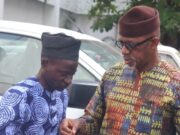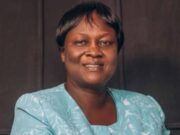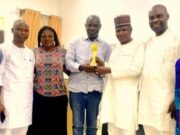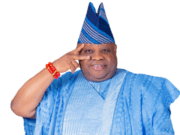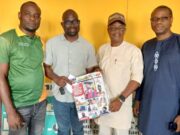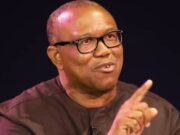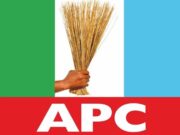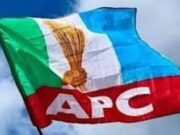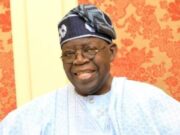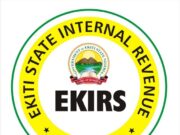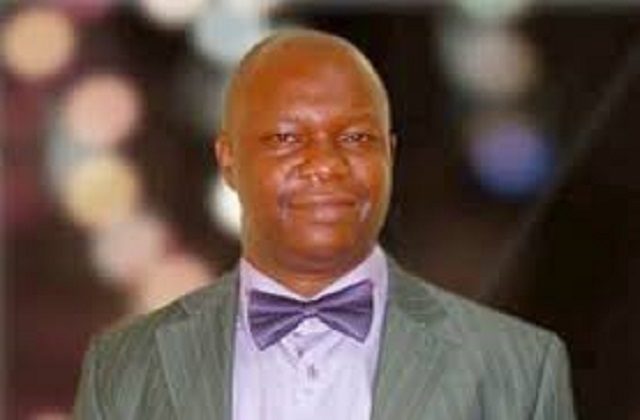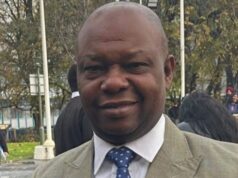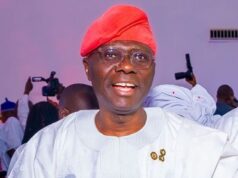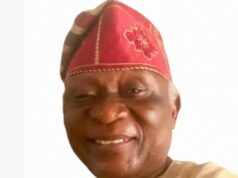In fulfillment of the Socratic dictum which says that an unexamined life is not worth living, I want to begin this piece by playing the devil’s advocate for Senator Aliyu Sabi Abdullahi, sponsor of the Hate Speech Bill which is provoking scalding reactions within and outside the shores of Nigeria at the moment. And my peg for the advocacy is the detestable story that emanated from the Police Service Commission (PSC) recently. The PSC had announced the appointment and promotion of officers within the police force, one of which was the promotion of 14 commissioners to the rank of Assistant Inspectors General of Police (AIGs).
Also, a couple of days ago, chaos erupted between the police command and the PSC over allegation that the Inspector General of Police, Mohammed Adamu, flouted the policy which spells out equitable requirements for each state of the federation to produce a police commissioner to head a state command. The situation right now is that some states of the north have four commissioners of police in four state commands while some other states in Nigeria cannot boast of even one. It is said that Rivers, Delta, Bayelsa, Abia, Ebonyi, Enugu, Anambra, Kogi, Benue, Nasarawa, Bauchi, Ogun, Ekiti, Ondo, Oyo and Jigawa, do not have a single commissioner representative among state command CPs.
The Hate Bill has courted anger, hatred, disdain and scalding remarks from Nigerians and her friends abroad who see it as an unmitigated disaster and an extension of the Muhammadu Buhari government’s believed bid to manacle Nigerians and throw them into the slammer for daring to criticize his administration.
I want to begin my advocacy from the bill’s Section 3. It states inter alia: “For the purpose of this Act, a person discriminates against another person if on ethnic grounds, the person without any lawful justification treats another Nigerian citizen less favourably than he treats or would treat other person from his ethnic or another ethnic group and/or that on grounds of ethnicity, a person puts another person at a particular disadvantage when compared with other persons from other ethnic nationality of Nigeria.” Section 4, which prohibits hate speech and Section 6, which prohibits ethnic or racial contempt, are specific on the ethnic component of hate speech. It thus goes without saying that protection of the sanctity of ethnicity is one of the obvious reasons this bill is being sponsored by Senator Abdullahi.
I am particular about the state of Abdullahi’s mind because if indeed he was concerned about the level of hatred that Nigeria’s over 520 languages and many tribes have for one another, then we actually need a bill to keep us in check or else, we are sprinting fast on the path of chaos, the like that the Hutus and Tutsis exhibited in Rwanda in 1994. The mutual recriminations, animosities, dislike are such that they must be put in check forthwith. These are even comparatively minute if placed side by side the way ethnic disdain is played out today under the Buhari government.
If I had ever promoted the ascendancy of an ethnic group over the other in Nigeria, my October, 2019 visit to the Kigali Genocide Memorial made me apostate of that road. In one fell swoop and within a hundred days, about a million people were martyred for the protection of the narrative that a tribe or a people was more sophisticated and more God-endowed than the other. It is similar to the religious narrative of a religion more God-approved than the other or even the superiority of a culture and language over the other. It has as its trappings, intolerance, disrespect for the other human person and is a prospective tinder that can incinerate a huge number of such advocates and multiple others.
If the quest to stop Nigerians’ shuttle towards the road to Kigali – which is a pure route to massacre – was behind Abdullahi’s decision to sponsor that bill, what we may excuse and seek to permanently erase is the draconian wordings of its punishment, as well as its descent into an intention to criminalize free speech. Other than that, everything needs to be done to stop this metastasis of mutual peaceful relationship of tribes and ethnicities in Nigeria.
Let us be factual, as federalists have submitted, Nigeria is not a nation but a state of different nationalities. This is why scholars have advocated that only a true practice of federalism can rescue the country from these obvious manifestations of cracks and antipathies. It is however obvious that every attempt to unitarize an obviously federal make-up like Nigeria will continue to push the country on the path of Kigali.
If the truth must be told, our forefathers legitimised those hate speeches that promoted mutual hatreds of one tribe over the other. The three regional governments made effete the effects of that mutual hatred as one region was free to actualize its belief in its ascendancy through promoting a government, living standard and developmental paradigm that announced its superiority over the other. The advent of the military in 1966 and the further promotion of the hate narratives by the putschists in government and their attempt to unitarize a federal Nigeria, without a corresponding promotion of ethnic ascendancy within each region, became the precursor of the Nigerian Civil War where over 1 million Nigerians were said to have been killed. Since then, even though subsequent military leaders promised to reintegrate the tribes and create a Nigeria where tribes and tongues do not matter, the unfortunate equation is that ethnic fissures have been dominant and playing at the cusp of governmental decisions ever since.
With impunity, the Buhari government has promoted that ethnic identity and supremacy more than any government within memory in recent time, with obvious flourishing of ethnic fissures and sharper ethnic identities. It is as if we are back to the unitaristic – pardon the inflection – inclination of Major General Aguiyi Ironsi of 1966. One of such is what is manifesting in the Nigeria Police today, the PSC being its most audacious instrument.
What name can one give an appointment of 14 Assistant Inspectors General of Police with a large chunk going to the northern part of the country and almost none to the other parts? How can anyone justify that in equity and in good conscience? Isn’t that an affront on equitable sharing and even justice? This is why or where Senator Abdullahi’s bill would be meaningful. The folks at the PSC should be its first victims when passed because those appointments violate the wordings of the bill and obviously, the commission and its agents behind the appointments are that, “a person (who) discriminates against another person if on ethnic grounds, the person without any lawful justification treats another Nigerian citizen less favourably than he treats or would treat other person from his ethnic or another ethnic group and/or that on grounds of ethnicity, a person puts another person at a particular disadvantage when compared with other persons from other ethnic nationality of Nigeria.”
While as a people, we must be wary of descending into the mirror of ethnic symbols and narratives because of their obvious implications for the peaceful coexistence of the people of Nigeria, we must also be mindful of Peter Tosh’s admonition that though the cry for peace is right, the shout for justice is more desirable. Methinks that if the presidency was mindful of the danger of this descent, it should wade into the dramatizing of these symbols at the PSC forthwith, stop the inequalities and ethnic inequities that are ongoing therein and let us return to the path of mending the cracks of our federal make-up that are widening since the beginning of this government.
Aisha’s curious epistles
FIRST Lady Aisha Buhari brings some refreshing aura to the Muhammadu Buhari government. Being a government that is widely perceived as uninspiring, lacking in initiatives and grossly disdainful of the wishes of the people, she has advertised an unexampled and I dare say, unprecedented, activism that is curious, against-method and which is worthy of interrogations. I had earlier brought out the need to interrogate, as well as acknowledge this trend.
Last Friday, Mrs. Buhari, at the General Assembly of the Nigerian Supreme Council of Islamic Affairs, (NSCIA) had said that political leaders in Nigeria would soon regret the consequences of worsening insecurity in the country, urging them to avert this by waking up to arrest this drift into infamy. She was also reported to have tongue-lashed state governors and ministers for what she called the inability of some Nigerians to have access to potable water and their obvious insulation from the tolls that insecurity is taking on the quality of lives of Nigerians as it was such that many people, political office holders especially, were not able to access their states..
“We must do justice to ourselves. As a result of long time of injustice done to others, today, most of us cannot go to our villages and sleep with our two eyes closed. We all know that and it is moving forward and forward…My husband has three years to go. We should fasten our seat belts, get up and do the needful or we will all regret it very soon, because at the rate which things are going, things are completely out of hand. The Vice President is here, ministers are here. They are supposed to do justice to whatever. People cannot afford potable drinking water in this country. We have ministers, we have governors..: she had been quoted to have said.
These are very penetrating statements that go deep into the roots of our current governmental afflictions. They are pungent and commendable. My interrogation is, what has the First Lady said here that are not mirrored in Omoyele Sowore’s beef with her husband’s government? For those who can decode grammatically loaded sentences, what does “at the rate which things are going, things are completely out of hand” mean if not that, at the rate things are going under the Buhari government, Nigerians may be forced to seek salvation in rebellion, which may go out of hand? So why is the First Lady not a guest of the DSS at the moment?
This is why, to my mind, the persona of the First Lady deserves to be subjected to very serious examination and interrogation. Is she real? If she is, are these not pieces of advice to be given to a husband while the light is switched off or while he is picking his teeth, legs crossed and a newspaper held by his hand? Is this couple living together at all? Are these barbs targeted at the cabal? Or, are these activist statements decoys? Curious and curiouser still are the names of these seasonal epistles that come out from the pulpit of the Nigerian First Lady.
Google map indiscretion
UNTIL a clarification came that it was a hoax, the hearts of many Nigerian patriots hung on the orifices of their mouths for hours upon the news that the FCT Sector Commander of the Federal Road Safety Corps (FRSC), Mr Ayuba Gora, had said that thenceforth, the corps had decreed that driving with the aid of Google map was a serious traffic offence. Patriots were apprehensive because of the news’ tendency to be another volley of shame, in the league of many of recent, which have hung on the neck of a hapless Nigeria.
As I speak, Nigeria is still trying to swim ashore from the river of global disgust at some pronouncements and policies of our government in recent time. While the Directorate of State Service (DSS) said recently that it was wary of releasing rights activist, Omoyele Sowore, from its gulag so that he would not be crushed by an oncoming vehicle, Senator Aliyu Sabi Abdullahi is also courting gross disdain across the globe for Nigeria because of a bill he sponsored perceived worldwide as seeking to criminalize free speech.
It is good that the FRSC denied this story, claiming that the official had been quoted out of context, otherwise, critical questions have started to be generated by this apparently less-than-deep statement. It was even hostile to global development and an affront on the ease that technology is providing to the citizens of the world. In virtually all developed world, Google map is an aid which drivers deploy to navigate byzantine road networks and there has been no scientific linkage between its usage and road crashes. So, why would Nigeria isolate herself from the rest of the world?
Sent in by Dr Festus Adedayo from Ibadan







